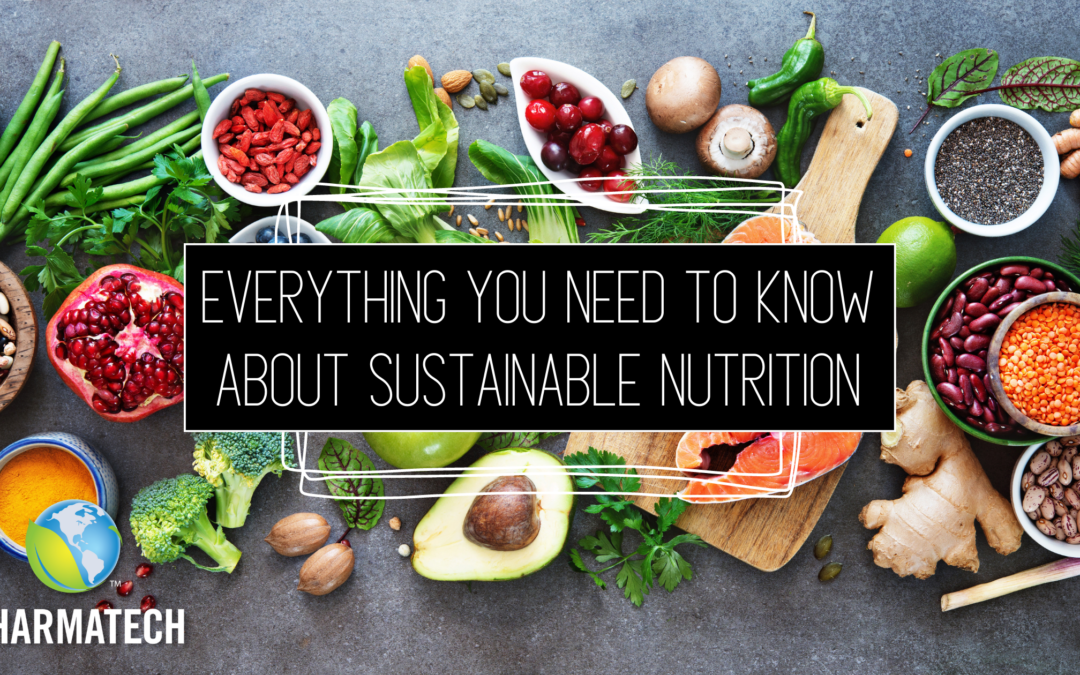With sustainable nutrition, we can optimize our global food system and tackle some of the most urgent health issues worldwide.
Food production is one of the largest causes of global environmental change. In fact, it is responsible for 25% of the world’s greenhouse gas emissions. In fewer than 30 years, the world population is estimated to increase by an additional two billion people, reaching an astounding 9.8 billion.
If we think we’re going to feed this number of people, it is essential to reevaluate our food systems and processes with sustainability at the forefront. Continue scrolling to learn everything you need to know about sustainability.
Sustainable Nutrition: What Is It?
Depending on its context, sustainability can have many different meanings. In regards to nutrition and health, sustainability means ensuring that nutrient-dense and wholeness foods are culturally relevant and affordable. This needs to be done while emphasizing our earth’s resources and supporting local communities, producers, and industries.
Sustainability is a buzzword and trending topic in our current climate and world situation. However, it is so much more than that. Sustainable nutrition is a complex issue that includes the world’s waste, food demands, and overall diet. With the increase in global temperatures and climate-related issues, now is the time to create more resilient and sustainable food systems.
Sustainability, in the world of health, means meeting our current needs without compromising future generations’ ability to meet their needs.
3 Reasons Sustainable Nutrition is Important
Nearly 10% of the world’s population is undernourished, and the world’s population is continuing to grow. When you consider sustainable food development, nutrition, and health, the hope is to secure a future with enough food and access to nutrient-dense diets. Here’s a closer look at why sustainability is essential:
Health Benefits — Decreased risk of certain cancers and other illnesses, lower cholesterol, improved cardiovascular health, and more.
Economic Benefits — Boost your local economy with revenue.
Environmental Benefits — Fewer fossil fuels are used, less energy is wasted, improved soil health, and more.
Determining Factors of Certain Diets and Their Sustainability
In addition to the impacts they have on a person, a sustainable diet benefits the food chain and environment as a whole. Here are some factors that determine the sustainability of a diet:
- Relative cost
- Nutritional availability
- Environmental and ecosystem protection
- Biodiversity
- Overall health
Sustainable Nutrition: How Do I Get Started?
Making the switch to a more sustainable diet isn’t that difficult. Here’s what you can do:
- Eat seasonally and locally
- Grow your garden, including vegetables, fruits, and herbs
- Use reusable water bottles, cutlery, and food storage options
- Support restaurants that source their menu locally
- Eat less processed food
Sustainable Nutrition? Pharmatech Labs Can Help!
Do you want to focus more on sustainable nutrition in your everyday life, Pharmatech Labs can help! We are a nutritional contract manufacturer and specialize in liquid and powder supplements. We are dedicated to keeping our customers at the forefront of all we do to ensure the highest satisfaction and quality levels.
Contact us today for a free quote or to learn more!




Recent Comments